
Martyn Green
The top 50 science stars of Twitter
Genomicist
Neil Hall sparked an online tempest this summer by proposing a
“Kardashian Index,” or K-index—a comparison of a scientist’s number of
Twitter followers with their citations. Scientists with a high score on
the index, named after the reality TV star Kim Kardashian,
one of the most popular celebrities on the social media platform,
should “get off Twitter” and write more papers, suggested Hall, who
works at the University of Liverpool in the United Kingdom.
Though Hall says he meant his K-index lightheartedly, his article in Genome Biology
sparked a Twitter storm of criticism. So just who are the Kardashians
of science, and is Hall’s criticism justified? Hall tactfully declined
to provide a K-index for anyone specific, but Science was
curious about the names and the numbers. We have compiled a list of the
50 most followed scientists on the social media platform and their
academic citation counts—and calculated their K-index by drawing on
citation data from Google Scholar (A fuller explanation of how we compiled the list is below, at the end of the full story).
The top three science stars of Twitter:
(Based on followers)
 1. Neil deGrasse Tyson, Astrophysicist
1. Neil deGrasse Tyson, Astrophysicist
2,400,000 followers @neiltyson
Citations: 151 K-index: 11129
Total number of tweets: 3,962
Hayden Planetarium, United States
 2. Brian Cox, Physicist
2. Brian Cox, Physicist
1,440,000 followers @ProfBrianCox
Citations: 33,301 K-index: 1188
Total number of tweets: 10,300
University of Manchester, United Kingdom
 3. Richard Dawkins, Biologist
3. Richard Dawkins, Biologist
1,020,000 followers @RichardDawkins
Citations: 49,631 K-index: 740
Total number of tweets: 19,000
University of Oxford, United Kingdom
See the full top 50 list.
Rather than identifying “Science Kardashians”—those who are, as Hallput it, “famous for being famous”—the top 50 list reveals that a
majority of the science Twitter stars spend much, if not all, of their
time on science communication. For them, Twitter popularity can amplify
their efforts in public outreach. A case in point is Neil deGrasse
Tyson, director of the Hayden Planetarium in New York City and host of
the science TV show Cosmos: A Spacetime Odyssey. With more than
2.4 million followers and fewer than 200 citations, the astrophysicist
is undoubtedly the top-ranking celebrity scientist on Twitter—and has
the highest K-index of anyone on the list. Yet few would consider his
Twitter fame unwarranted.
Although the index is named for a woman, Science’s survey
highlights the poor representation of female scientists on Twitter,
which Hall hinted at in his commentary. Of the 50 most followed
scientists, only four are women. Astronomer Pamela Gay of Southern
Illinois University, Edwardsville, whose more than 17,000 Twitter
followers put her 33rd on the list, says the result doesn’t surprise her
because society still struggles to recognize women as leaders in
science. Female scientists are also more likely to face sexist attacks
online that can discourage their participation, she adds. “At some
point, you just get fed up with all the ‘why you are ugly’ or ‘why you
are hot’ comments.”
Twitter stardom need not exclude research achievements, as our top 50
Twitter list shows. Many have thousands of citations and seven of the
people listed also appear on two recent citation-based rankings of
influential scientists, the 2014 Thomson Reuters Highly Cited Researchers list and Scholarometer’s top 100 authors ranking. Even so, most high-performing scientists have not embraced Twitter. Science
sampled Twitter usage among 50 randomly chosen living scientists from
the Scholarometer list. Only a fifth of the scientists have an
identifiable Twitter profile.
Even some who do dislike the medium. Chad Mirkin of Northwestern
University in Evanston, Illinois, the highest ranking chemist on
Scholarometer’s list, considers Twitter a waste of precious time that
he’d much prefer spending on reading and writing scientific papers. “A
lot of social media is … time spent aggrandizing one’s accomplishment,”
says Mirkin, who registered on Twitter just to keep up with his son’s
tennis scores. The linguist Noam Chomsky, the most famous living scientist by some measures, has also repeatedly criticized social media for reducing serious public discourse to, well, 140 characters.
So why do the highly cited researchers who are also Twitter science
stars make the time to engage in social media? Geneticist Eric Topol of
the Scripps Research Institute in San Diego, California (17th place;
44,800 followers), who boasts more than 150,000 citations, says he once
thought the social media platform was only for “silly stuff” like
celebrity news. Then he tried Twitter during a TEDMED conference in
2009, as a tool to gauge reactions to his talk. Now, he starts his
workday browsing through his Twitter feed for news and noteworthy
research in his field. During the day, he checks Twitter several times
and spends another 10 to 20 minutes on an evening roundup. “It actually
may be the most valuable time [I spend] in terms of learning things that
are going on in the world of science and medicine,” says Topol, who
reciprocates by daily tweeting papers, presentations, and more to his
followers.
Psychologist Daniel Gilbert of Harvard University (36th; 15,500
followers) views Twitter as a natural extension of his other public
outreach efforts, which include hosting the PBS science documentary, This Emotional Life.
For him, Twitter is a virtual classroom connecting netizens worldwide
who are interested in the psychology of happiness. “It’s another
teaching tool,” he says.
Like Topol, Jonathan Eisen of the University of California, Davis
(25th; 24,900 followers), says he did not start out as a Twitter fan. An
enthusiast of open access and exchange, Eisen participated in
scientific discussion forums, such as newsgroups, even before the days
of the World Wide Web. But Twitter’s 140-character word limit initially
seemed both “arbitrary and useless” to him, he says. It was for purely
coincidental reasons—checking out details of a visit by famed cyclist
Lance Armstrong to Davis, California—that the microbiologist signed up
for an account in 2008.
But after 20 minutes of perusing news on the social media platform
that day, Eisen says, he was hooked. “In a minute, I can skim through a
hundred Twitter posts. … It’s pretty amazing for getting a feel of
what’s going on,” says Eisen, who now daily spends anywhere from 5
minutes to 8 hours on Twitter, in addition to running a blog. Yet Eisen
also has close to 42,000 citations under his belt.
Eisen says that consistently tweeting ongoing research at his lab has
helped attract graduate students as well as two grants for science
communication. He suggests an active social media presence might even
aid applications for research funding, as it demonstrates a commitment
to public outreach. But the spontaneity of Twitter can backfire, too.
Eisen, for one, has live-tweeted brusque criticism at academic
conferences that came back to bite him. “You can seem like a jerk, an
idiot, or both,” he says.
The temporal, attention-grabbing nature of Twitter posts also makes
them ill-suited for nuanced, in-depth scientific discussions. Gilbert
says he prefers to tweet materials that appeal to a general audience,
rather than complex scientific papers. Likewise, Eisen reserves lengthy
discussions for old-fashioned phone calls and uses Twitter to instead
link to blog posts and other, longer materials.
Still, he and others credit Twitter as a crowdsourcing platform for
new ideas and research. Topol says he relies on the “army of Web
crawlers” on Twitter to bring him the latest, most noteworthy research
in medical science. His own tweets, mostly about papers and
presentations he finds interesting, also form an archive that can be
extracted with a little tech savvy.
The social media tool also functions as “another dimension of peer
review,” Topol says. Instead of waiting for the old letters to the
editor, scientists can go to Twitter for rapid critique of their
research. “Authors who are not willing to get engaged on social media
are missing out on a significant opportunity,” he says.
The K-index gets it wrong by suggesting that science communication
and research productivity are incompatible, says Albert-László Barabási,
a network theorist at Northeastern University in Boston who studies
social media. Research on altmetrics—alternative metrics for measuring
scientific impact—has found no link
between social media metrics such as number of tweets and traditional
impact metrics such as citations, he says. “We should really not mix the
two … because they really probe different aspects of a scientist’s
personality.”
For his part, Hall says others have read too much into his satire,
which originated after seeing conference organizers factor Twitter
follower numbers into speaker considerations. “I don’t mean to criticize
anyone for having a lot of Twitter followers,” he says. “My criticism
is only of using it as a metric on research scientists.”
It might be premature, in any case, for the scientific community to
worry about “Science Kardashians” when it faces a more pressing
challenge of staying relevant in public discussions. Even Tyson’s
Twitter popularity is dwarfed by that of the real Kim Kardashian, who
boasts 10 times as many followers.
*SURVEY METHODS
The list of most followed scientists compiled here is far from
scientific. To identify Twitter science stars, we began with celebrity
scientists such as Tyson and checked out which scientists they followed.
We also referenced online lists of scientists to follow on Twitter,
such as this one by The Huffington Post.
If we’ve missed someone who belongs on the top 50 list, do let us know
in the comment section. Follower number is, of course, a very crude
proxy of influence on Twitter, but it’s the most accessible metric for
the purpose of this story.
The question of who counts as a scientist is itself a matter of
debate. As a general guideline, we included only those who have
completed a Ph.D. degree and published at least one peer-reviewed paper
in a peer-reviewed journal. As an exception to this rule, we excluded
professional journalists who fit the above criteria.
We recorded the number of Twitter followers for our list on 15
September. To tally the number of citations for each scientist, we over
the past month looked up their Google Scholar profiles or, for those
without a profile, used estimates produced by the Publish or Perish
software, developed by business professor Anne-Wil Harzing of ESCP
Europe. Due to limitations of both methods, the citation numbers are
only rough estimates. For example, there’s no easy way to distinguish
physicist Brian Cox of the University of Manchester in the United
Kingdom from physiologist Brian Cox of the University of Toronto in
Canada in calculating the former’s citation count. Seven on our top 50
list appear on either the 2014 Thomson Reuters Highly Cited Researchers list (*) or the Scholarometer’s top 100 authors (+) ranking, and each is noted with a symbol.
The Kardashian Index is calculated as follows: In his commentary,
using data gathered on 40 scientists, Hall derived a formula for
calculating the number of Twitter followers a scientist should have
given one’s citation count. The K-index is the ratio of the scientist’s
actual follower number to the follower number “warranted” by the
citation count.
An Excel document with all the data collected is here.
highlights the poor representation of female scientists on Twitter,
which Hall hinted at in his commentary. Of the 50 most followed
scientists, only four are women. Astronomer Pamela Gay of Southern
Illinois University, Edwardsville, whose more than 17,000 Twitter
followers put her 33rd on the list, says the result doesn’t surprise her
because society still struggles to recognize women as leaders in
science. Female scientists are also more likely to face sexist attacks
online that can discourage their participation, she adds. “At some
point, you just get fed up with all the ‘why you are ugly’ or ‘why you
are hot’ comments.”
Twitter stardom need not exclude research achievements, as our top 50
Twitter list shows. Many have thousands of citations and seven of the
people listed also appear on two recent citation-based rankings of
influential scientists, the 2014 Thomson Reuters Highly Cited Researchers list and Scholarometer’s top 100 authors ranking. Even so, most high-performing scientists have not embraced Twitter. Science
sampled Twitter usage among 50 randomly chosen living scientists from
the Scholarometer list. Only a fifth of the scientists have an
identifiable Twitter profile.
Even some who do dislike the medium. Chad Mirkin of Northwestern
University in Evanston, Illinois, the highest ranking chemist on
Scholarometer’s list, considers Twitter a waste of precious time that
he’d much prefer spending on reading and writing scientific papers. “A
lot of social media is … time spent aggrandizing one’s accomplishment,”
says Mirkin, who registered on Twitter just to keep up with his son’s
tennis scores. The linguist Noam Chomsky, the most famous living scientist by some measures, has also repeatedly criticized social media for reducing serious public discourse to, well, 140 characters.
So why do the highly cited researchers who are also Twitter science
stars make the time to engage in social media? Geneticist Eric Topol of
the Scripps Research Institute in San Diego, California (17th place;
44,800 followers), who boasts more than 150,000 citations, says he once
thought the social media platform was only for “silly stuff” like
celebrity news. Then he tried Twitter during a TEDMED conference in
2009, as a tool to gauge reactions to his talk. Now, he starts his
workday browsing through his Twitter feed for news and noteworthy
research in his field. During the day, he checks Twitter several times
and spends another 10 to 20 minutes on an evening roundup. “It actually
may be the most valuable time [I spend] in terms of learning things that
are going on in the world of science and medicine,” says Topol, who
reciprocates by daily tweeting papers, presentations, and more to his
followers.
Psychologist Daniel Gilbert of Harvard University (36th; 15,500
followers) views Twitter as a natural extension of his other public
outreach efforts, which include hosting the PBS science documentary, This Emotional Life.
For him, Twitter is a virtual classroom connecting netizens worldwide
who are interested in the psychology of happiness. “It’s another
teaching tool,” he says.
Like Topol, Jonathan Eisen of the University of California, Davis
(25th; 24,900 followers), says he did not start out as a Twitter fan. An
enthusiast of open access and exchange, Eisen participated in
scientific discussion forums, such as newsgroups, even before the days
of the World Wide Web. But Twitter’s 140-character word limit initially
seemed both “arbitrary and useless” to him, he says. It was for purely
coincidental reasons—checking out details of a visit by famed cyclist
Lance Armstrong to Davis, California—that the microbiologist signed up
for an account in 2008.
But after 20 minutes of perusing news on the social media platform
that day, Eisen says, he was hooked. “In a minute, I can skim through a
hundred Twitter posts. … It’s pretty amazing for getting a feel of
what’s going on,” says Eisen, who now daily spends anywhere from 5
minutes to 8 hours on Twitter, in addition to running a blog. Yet Eisen
also has close to 42,000 citations under his belt.
Eisen says that consistently tweeting ongoing research at his lab has
helped attract graduate students as well as two grants for science
communication. He suggests an active social media presence might even
aid applications for research funding, as it demonstrates a commitment
to public outreach. But the spontaneity of Twitter can backfire, too.
Eisen, for one, has live-tweeted brusque criticism at academic
conferences that came back to bite him. “You can seem like a jerk, an
idiot, or both,” he says.
The temporal, attention-grabbing nature of Twitter posts also makes
them ill-suited for nuanced, in-depth scientific discussions. Gilbert
says he prefers to tweet materials that appeal to a general audience,
rather than complex scientific papers. Likewise, Eisen reserves lengthy
discussions for old-fashioned phone calls and uses Twitter to instead
link to blog posts and other, longer materials.
Still, he and others credit Twitter as a crowdsourcing platform for
new ideas and research. Topol says he relies on the “army of Web
crawlers” on Twitter to bring him the latest, most noteworthy research
in medical science. His own tweets, mostly about papers and
presentations he finds interesting, also form an archive that can be
extracted with a little tech savvy.
The social media tool also functions as “another dimension of peer
review,” Topol says. Instead of waiting for the old letters to the
editor, scientists can go to Twitter for rapid critique of their
research. “Authors who are not willing to get engaged on social media
are missing out on a significant opportunity,” he says.
The K-index gets it wrong by suggesting that science communication
and research productivity are incompatible, says Albert-László Barabási,
a network theorist at Northeastern University in Boston who studies
social media. Research on altmetrics—alternative metrics for measuring
scientific impact—has found no link
between social media metrics such as number of tweets and traditional
impact metrics such as citations, he says. “We should really not mix the
two … because they really probe different aspects of a scientist’s
personality.”
For his part, Hall says others have read too much into his satire,
which originated after seeing conference organizers factor Twitter
follower numbers into speaker considerations. “I don’t mean to criticize
anyone for having a lot of Twitter followers,” he says. “My criticism
is only of using it as a metric on research scientists.”
It might be premature, in any case, for the scientific community to
worry about “Science Kardashians” when it faces a more pressing
challenge of staying relevant in public discussions. Even Tyson’s
Twitter popularity is dwarfed by that of the real Kim Kardashian, who
boasts 10 times as many followers.
*SURVEY METHODS
The list of most followed scientists compiled here is far from
scientific. To identify Twitter science stars, we began with celebrity
scientists such as Tyson and checked out which scientists they followed.
We also referenced online lists of scientists to follow on Twitter,
such as this one by The Huffington Post.
If we’ve missed someone who belongs on the top 50 list, do let us know
in the comment section. Follower number is, of course, a very crude
proxy of influence on Twitter, but it’s the most accessible metric for
the purpose of this story.
The question of who counts as a scientist is itself a matter of
debate. As a general guideline, we included only those who have
completed a Ph.D. degree and published at least one peer-reviewed paper
in a peer-reviewed journal. As an exception to this rule, we excluded
professional journalists who fit the above criteria.
We recorded the number of Twitter followers for our list on 15
September. To tally the number of citations for each scientist, we over
the past month looked up their Google Scholar profiles or, for those
without a profile, used estimates produced by the Publish or Perish
software, developed by business professor Anne-Wil Harzing of ESCP
Europe. Due to limitations of both methods, the citation numbers are
only rough estimates. For example, there’s no easy way to distinguish
physicist Brian Cox of the University of Manchester in the United
Kingdom from physiologist Brian Cox of the University of Toronto in
Canada in calculating the former’s citation count. Seven on our top 50
list appear on either the 2014 Thomson Reuters Highly Cited Researchers list (*) or the Scholarometer’s top 100 authors (+) ranking, and each is noted with a symbol.
The Kardashian Index is calculated as follows: In his commentary,
using data gathered on 40 scientists, Hall derived a formula for
calculating the number of Twitter followers a scientist should have
given one’s citation count. The K-index is the ratio of the scientist’s
actual follower number to the follower number “warranted” by the
citation count.
An Excel document with all the data collected is here.
The top 50 science stars of Twitter
Read the full story on this list.
 1. Neil deGrasse Tyson, Astrophysicist
1. Neil deGrasse Tyson, Astrophysicist
2,400,000 followers @neiltyson
Citations: 151 K-index: 11129
Total number of tweets: 3,962
Hayden Planetarium, United States
 2. Brian Cox, Physicist
2. Brian Cox, Physicist
1,440,000 followers @ProfBrianCox
Citations: 33,301 K-index: 1188
Total number of tweets: 10,300
University of Manchester, United Kingdom
 3. Richard Dawkins, Biologist
3. Richard Dawkins, Biologist
1,020,000 followers @RichardDawkins
Citations: 49,631 K-index: 740
Total number of tweets: 19,000
University of Oxford, United Kingdom
 4. Ben Goldacre, Physician
4. Ben Goldacre, Physician
341,000 followers @bengoldacre
Citations: 1,086 K-index: 841
Total number of tweets: 47,300
London School of Hygiene & Tropical Medicine, United Kingdom
 5. Phil Plait, Astronomer
5. Phil Plait, Astronomer
320,000 followers @BadAstronomer
Citations: 254 K-index: 1256
Total number of tweets: 47,000
Bad Astronomy, United States
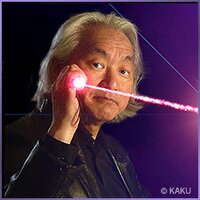 6. Michio Kaku, Theoretical physicist
6. Michio Kaku, Theoretical physicist
310,000 followers @michiokaku
Citations: 5,281 K-index: 461
Total number of tweets: 1,130
The City College of New York, United States
 7. Sam Harris, Neuroscientist
7. Sam Harris, Neuroscientist
224,000 followers @SamHarrisOrg
Citations: 2,416 K-index: 428
Total number of tweets: 2,600
Project Reason, United States
 8. Hans Rosling, Global health scientist
8. Hans Rosling, Global health scientist
180,000 followers @HansRosling
Citations: 1,703 K-index: 384
Total number of tweets: 2,708
Karolinska Institute, Sweden
 9. Tim Berners-Lee, Computer scientist
9. Tim Berners-Lee, Computer scientist
179,000 followers @timberners_lee
Citations: 51,204 K-index: 129
Total number of tweets: 542
Massachusetts Institute of Technology, United States
 10. P.Z. Myers, Biologist
10. P.Z. Myers, Biologist
155,000 followers @pzmyers
Citations: 1,364 K-index: 355
Total number of tweets: 25,400
University of Minnesota, Morris, United States
 11. Steven Pinker, Cognitive scientist
11. Steven Pinker, Cognitive scientist
142,000 followers @sapinker
Citations: 49,933 K-index: 103
Total number of tweets: 1,612
Harvard University, United States
 12. Richard Wiseman, Psychologist
12. Richard Wiseman, Psychologist
134,000 followers @RichardWiseman
Citations: 4,687 K-index: 207
Total number of tweets: 22,400
University of Hertfordshire, United Kingdom
 13. Lawrence M. Krauss, Theoretical physicist
13. Lawrence M. Krauss, Theoretical physicist
99,700 followers @LKrauss1
Citations: 10,155 K-index: 120
Total number of tweets: 1,548
Arizona State University, United States
 14. Atul Gawande, Surgeon/public health scientist
14. Atul Gawande, Surgeon/public health scientist
96,800 followers @Atul_Gawande
Citations: 13,763 K-index: 106
Total number of tweets: 2,118
Harvard University, United States
 15. Oliver Sacks, Neurologist
15. Oliver Sacks, Neurologist
76,300 followers @OliverSacks
Citations: 13,883 K-index: 83
Total number of tweets: 746
New York University, United States
 16. Dan Ariely*, Psychologist/behavioral economist
16. Dan Ariely*, Psychologist/behavioral economist
73,000 followers @danariely
Citations: 16,307 K-index: 76
Total number of tweets: 1,091
Duke University, United States
 17. Eric Topol*, Geneticist
17. Eric Topol*, Geneticist
44,800 followers @EricTopol
Citations: 151,281 K-index: 23
Total number of tweets: 4,966
The Scripps Research Institute, United States
 18. Brian Greene, Theoretical physicist
18. Brian Greene, Theoretical physicist
38,700 followers @bgreene
Citations: 11,133 K-index: 45
Total number of tweets: 191
Columbia University, United States
 19. Marcus du Sautoy, Mathematician
19. Marcus du Sautoy, Mathematician
34,200 followers @MarcusduSautoy
Citations: 1,461 K-index: 77
Total number of tweets: 3,555
University of Oxford, United Kingdom
 20. Sean Carroll, Theoretical physicist
20. Sean Carroll, Theoretical physicist
33,200 followers @seanmcarroll
Citations: 14,208 K-index: 36
Total number of tweets: 7,295
California Institute of Technology, United States
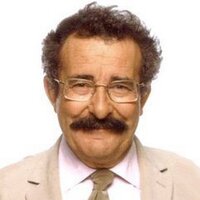 21. Robert Winston, Fertility scientist
21. Robert Winston, Fertility scientist
31,900 followers @ProfRWinston
Citations: 7,324 K-index: 43
Total number of tweets: 445
Imperial College London, United Kingdom
 22. Bruce Betts, Planetary scientist
22. Bruce Betts, Planetary scientist
28,500 followers @RandomSpaceFact
Citations: 91 K-index: 155
Total number of tweets: 1,619
The Planetary Society, United States
 23. Carolyn Porco, Planetary scientist
23. Carolyn Porco, Planetary scientist
26,100 followers @carolynporco
Citations: 2,717 K-index: 48
Total number of tweets: 12,700
Space Science Institute, United States
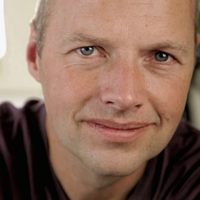 24. Sebastian Thrun+, Computer scientist
24. Sebastian Thrun+, Computer scientist
25,200 followers @SebastianThrun
Citations: 57,110 K-index: 17
Total number of tweets: 185
Stanford University, United States
 25. Jonathan Eisen*, Biologist
25. Jonathan Eisen*, Biologist
24,900 followers @phylogenomics
Citations: 41,289 K-index: 19
Total number of tweets: 46,100
University of California, Davis, United States
 26. J. Craig Venter, Genomicist
26. J. Craig Venter, Genomicist
23,500 followers @JCVenter
Citations: 75,338 K-index: 15
Total number of tweets: 365
J. Craig Venter Institute, United States
 27. Vaughan Bell, Neuroscientist
27. Vaughan Bell, Neuroscientist
23,500 followers @vaughanbell
Citations: 821 K-index: 63
Total number of tweets: 10,900
King's College London, United Kingdom
 28. Robert Simpson, Astronomer
28. Robert Simpson, Astronomer
21,500 followers @orbitingfrog
Citations: 2,280 K-index: 42
Total number of tweets: 11,500
University of Oxford, United Kingdom
 29. Michael E. Mann*, Meteorologist
29. Michael E. Mann*, Meteorologist
20,900 followers @MichaelEMann
Citations: 15,049 K-index: 22
Total number of tweets: 20,000
Pennsylvania State University, United States
 30. Jerry Coyne, Biologist
30. Jerry Coyne, Biologist
19,500 followers @Evolutionistrue
Citations: 16,657 K-index: 20
Total number of tweets: 7,711
University of Chicago, United States
31. Gary King*, Statistician
19,400 followers @kinggary
Citations: 36,311 K-index: 16
Total number of tweets: 3,080
Harvard University, United States
 32. Mike Brown, Astronomer
32. Mike Brown, Astronomer
18,300 followers @plutokiller
Citations: 7,870 K-index: 24
Total number of tweets: 9,764
California Institute of Technology, United States
 33. Pamela L. Gay, Astronomer
33. Pamela L. Gay, Astronomer
17,800 followers @starstryder
Citations: 238 K-index: 71
Total number of tweets: 12,700
Southern Illinois University, Edwardsville, United States
 34. Jean Francois Gariépy, Neuroscientist
34. Jean Francois Gariépy, Neuroscientist
17,700 followers @JFGariepy
Citations: 153 K-index: 82
Total number of tweets: 3,231
Duke University, United States
 35. Bob Metcalfe, Computer scientist
35. Bob Metcalfe, Computer scientist
16,400 followers @BobMetcalfe
Citations: 424 K-index: 55
Total number of tweets: 16,100
University of Texas, Austin, United States
 36. Daniel Gilbert+, Psychologist
36. Daniel Gilbert+, Psychologist
15,500 followers @DanTGilbert
Citations: 26,752 K-index: 14
Total number of tweets: 1,294
Harvard University, United States
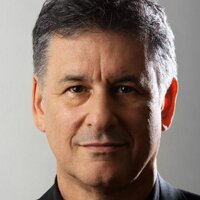 37. Daniel Levitin, Neuroscientist
37. Daniel Levitin, Neuroscientist
15,400 followers @danlevitin
Citations: 5,688 K-index: 22
Total number of tweets: 3,036
McGill University, Canada
 38. Andrew Maynard, Environmental health scientist
38. Andrew Maynard, Environmental health scientist
15,300 followers @2020science
Citations: 10,411 K-index: 18
Total number of tweets: 16,200
University of Michigan Risk Science Center, United States
 39. Paul Bloom, Psychologist
39. Paul Bloom, Psychologist
15,100 followers @paulbloomatyale
Citations: 14,135 K-index: 16
Total number of tweets: 1,973
Yale University, United States
 40. Matt Lieberman, Neuroscientist
40. Matt Lieberman, Neuroscientist
14,500 followers @social_brains
Citations: 12,763 K-index: 16
Total number of tweets: 3,088
University of California, Los Angeles, United States
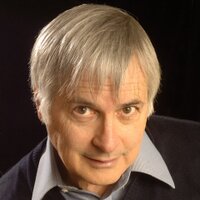 41. Seth Shostak, Astronomer
41. Seth Shostak, Astronomer
14,500 followers @SethShostak
Citations: 424 K-index: 48
Total number of tweets: 294
SETI Institute, United States
 42. Daniel MacArthur, Genomicist
42. Daniel MacArthur, Genomicist
14,100 followers @dgmacarthur
Citations: 6,884 K-index: 19
Total number of tweets: 15,600
Harvard Medical School, United States
 43. John Allen Paulos, Mathematician
43. John Allen Paulos, Mathematician
14,000 followers @JohnAllenPaulos
Citations: 1,489 K-index: 31
Total number of tweets: 4,144
Temple University, United States
 44. Ves Dimov, Immunologist
44. Ves Dimov, Immunologist
13,900 followers @DrVes
Citations: 211 K-index: 58
Total number of tweets: 32,200
University of Chicago, United States
 45. Simon Baron-Cohen, Psychopathologist
45. Simon Baron-Cohen, Psychopathologist
13,600 followers @sbaroncohen
Citations: 84,132 K-index: 8
Total number of tweets: 119
University of Cambridge, United Kingdom
 46. Amy Mainzer, Astronomer
46. Amy Mainzer, Astronomer
13,600 followers @AmyMainzer
Citations: 1,444 K-index: 31
Total number of tweets: 2,221
Jet Propulsion Laboratory, United States
 47. Brian Krueger, Genomicist
47. Brian Krueger, Genomicist
12,500 followers @LabSpaces
Citations: 154 K-index: 58
Total number of tweets: 36,700
Duke University, United States
 48. Karen James, Biologist
48. Karen James, Biologist
12,200 followers @kejames
Citations: 1,007 K-index: 31
Total number of tweets: 61,800
Mount Desert Island Biological Laboratory, United States
 49. Michael Eisen, Biologist
49. Michael Eisen, Biologist
11,800 followers @mbeisen
Citations: 68,785 K-index: 8
Total number of tweets: 16300
University of California, Berkeley, United States
 50. Micah Allen, Neuroscientist
50. Micah Allen, Neuroscientist
11,600 followers @neuroconscience
Citations: 81 K-index: 66
Total number of tweets: 21,900
University College London, United Kingdom
The top 50 science stars of Twitter | Science | AAAS
No comments:
Post a Comment